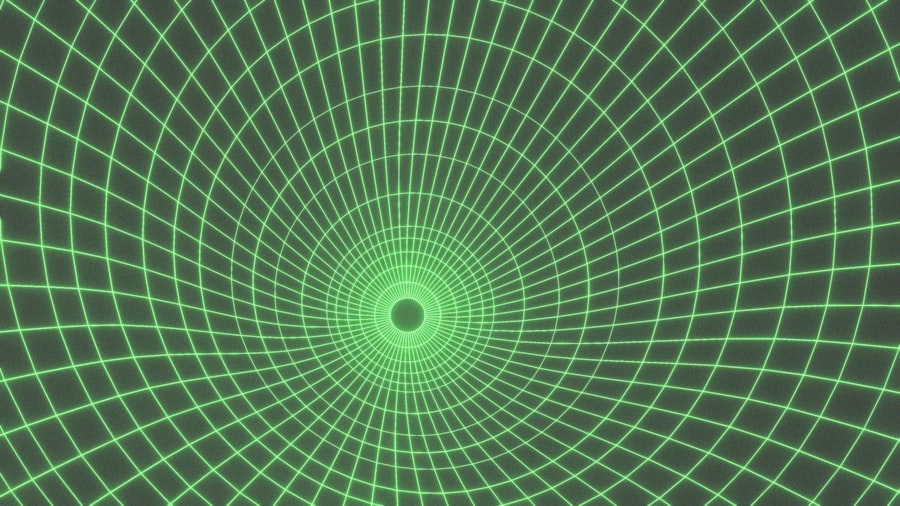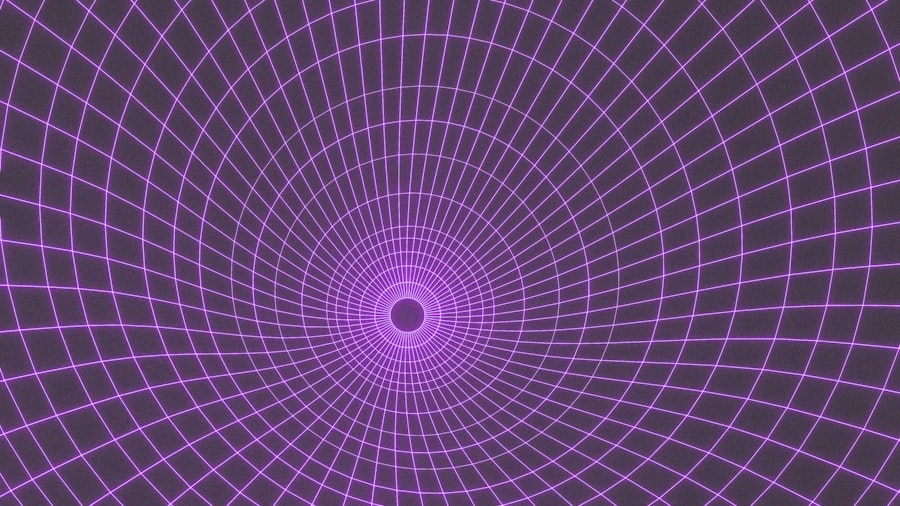Quantum mechanics, a branch of physics that delves into the behavior of matter and energy at the smallest scales, has revolutionized humanity’s understanding of the universe. It challenges classical notions of reality, introducing concepts that defy everyday intuition. As scientists explore the implications of quantum mechanics, they are not only uncovering the fundamental workings of particles and forces but also contemplating profound questions about the universe’s fate.
The end of the universe, a topic that has fascinated philosophers and scientists alike, may be intricately linked to the principles of quantum mechanics. The universe, as it stands, is a vast and complex entity governed by both classical and quantum laws. While classical physics provides a framework for understanding large-scale phenomena, quantum mechanics reveals a world where uncertainty reigns and particles can exist in multiple states simultaneously.
This duality raises intriguing questions about how the universe might ultimately meet its end. As researchers continue to probe the depths of quantum theory, they find themselves grappling with the implications of these principles on cosmic scales, leading to a deeper understanding of both existence and extinction.
Key Takeaways
- Quantum mechanics plays a crucial role in understanding the end of the universe.
- The uncertainty principle raises questions about the fate of the universe and its ultimate collapse.
- Quantum entanglement may hold the key to understanding the collapse of the universe.
- Quantum tunneling is a significant factor in the universe’s end, influencing its final moments.
- Quantum superposition and the multiverse theory offer intriguing possibilities for the end of the universe.
The Uncertainty Principle and the Fate of the Universe
At the heart of quantum mechanics lies the uncertainty principle, formulated by Werner Heisenberg in the 1920s. This principle posits that certain pairs of physical properties, such as position and momentum, cannot be simultaneously known with arbitrary precision. The more accurately one property is measured, the less accurately the other can be determined.
This inherent uncertainty is not merely a limitation of measurement but a fundamental characteristic of nature itself. It suggests that at a quantum level, reality is not as deterministic as once believed. The implications of the uncertainty principle extend beyond individual particles to the cosmos as a whole.
As scientists ponder the fate of the universe, they must consider how this principle influences cosmic events. For instance, if the universe’s expansion is subject to quantum uncertainties, it could lead to unpredictable outcomes regarding its ultimate fate. The interplay between dark energy and matter may be influenced by these quantum fluctuations, potentially resulting in scenarios ranging from a slow fade into darkness to a sudden collapse.
Thus, the uncertainty principle serves as a reminder that even in discussions about cosmic destiny, unpredictability reigns supreme.
Quantum Entanglement and the Collapse of the Universe

Quantum entanglement is another cornerstone of quantum mechanics that has profound implications for understanding the universe’s fate. When two particles become entangled, their states become interdependent regardless of the distance separating them. A change in one particle’s state instantaneously affects its entangled partner, defying classical notions of locality.
As researchers explore the implications of entanglement on a cosmic scale, they consider how it might contribute to scenarios involving the collapse of the universe. If entangled particles are woven into the fabric of spacetime itself, their interactions could play a role in determining how cosmic structures evolve over time.
The potential for entangled states to influence one another suggests that even distant galaxies may be interconnected in ways that are not yet fully understood. This interconnectedness could lead to cascading effects that ultimately shape the universe’s fate, whether through accelerated expansion or a dramatic collapse.
The Role of Quantum Tunneling in the Universe’s End
| Quantum Tunneling Metrics | Value |
|---|---|
| Probability of Tunneling | 0.0001 |
| Energy Barrier Height | 10^30 Joules |
| Time Scale | 10^100 years |
| Effect on Universe’s End | Accelerates heat death |
Quantum tunneling is a phenomenon where particles can pass through energy barriers that would be insurmountable according to classical physics. This behavior arises from the wave-like nature of particles at the quantum level, allowing them to “tunnel” through barriers rather than being confined by them. The implications of quantum tunneling extend beyond individual particles; they may also provide insights into cosmic events that could signal the end of the universe.
In cosmological terms, quantum tunneling could play a role in processes such as vacuum decay, where a stable vacuum state transitions to a lower-energy state through tunneling. This transition could lead to catastrophic consequences for the universe as we know it, potentially resulting in a bubble of lower-energy vacuum expanding at light speed and obliterating everything in its path. Such scenarios highlight how quantum tunneling introduces an element of unpredictability into discussions about cosmic fate, suggesting that even seemingly stable states may harbor hidden vulnerabilities.
Quantum Superposition and the Multiverse Theory
Quantum superposition is a fundamental principle that allows particles to exist in multiple states simultaneously until measured or observed. This concept has led to intriguing interpretations regarding the nature of reality itself and has given rise to theories such as the multiverse hypothesis. According to this idea, every possible outcome exists in parallel universes, each representing different configurations of reality.
The multiverse theory raises profound questions about the end of our universe. If every possible outcome exists across an infinite number of universes, then there may be countless scenarios for how different universes could meet their ends. Some might experience heat death, while others could undergo catastrophic events or even cyclical rebirths.
This perspective challenges traditional notions of finality and suggests that while one universe may cease to exist, others continue on in an endless tapestry of existence.
Quantum Gravity and the Final Moments of the Universe

Quantum gravity seeks to unify general relativity and quantum mechanics into a single framework capable of describing gravity at quantum scales. As scientists grapple with this complex endeavor, they are confronted with questions about what happens during the final moments of the universe’s existence. The interplay between quantum effects and gravitational forces may hold key insights into how spacetime behaves under extreme conditions.
In scenarios involving black holes or singularities, quantum gravity could provide answers to longstanding mysteries about what occurs when matter collapses under its own gravity. Theoretical models suggest that as the universe approaches its end, quantum gravitational effects may dominate, leading to phenomena such as spacetime fluctuations or even new forms of matter and energy emerging from these extremes. Understanding these processes could illuminate not only how the universe ends but also what might lie beyond that endpoint.
Quantum Fluctuations and the Heat Death of the Universe
Quantum fluctuations are temporary changes in energy levels that occur even in seemingly empty space due to inherent uncertainties at the quantum level. These fluctuations play a crucial role in various physical processes and have significant implications for cosmology. As scientists contemplate the eventual heat death of the universe—a state where all energy is evenly distributed and no thermodynamic free energy remains—they must consider how quantum fluctuations might influence this outcome.
In a universe approaching heat death, quantum fluctuations could introduce localized pockets of activity amidst an otherwise stagnant cosmos. These fluctuations may prevent complete uniformity by creating transient structures or events that momentarily disrupt equilibrium. However, as time progresses and entropy increases, these fluctuations may become less significant, leading to an eventual state where all activity ceases.
The interplay between quantum fluctuations and thermodynamic principles underscores how even at cosmic scales, quantum mechanics continues to shape reality.
Quantum Black Holes and the End of Space-Time
Black holes represent one of the most enigmatic phenomena in astrophysics, embodying both classical and quantum principles. As regions where gravity is so intense that nothing can escape their grasp, black holes challenge our understanding of space-time itself. The study of quantum black holes—hypothetical entities that incorporate both quantum mechanics and general relativity—raises questions about what happens at their event horizons and beyond.
The fate of black holes is intricately tied to discussions about space-time’s ultimate end. Some theories suggest that black holes may evaporate over time through Hawking radiation—a process where quantum effects allow them to emit particles and lose mass gradually. This evaporation could lead to scenarios where black holes eventually disappear entirely, leaving behind a void in space-time.
Such outcomes prompt reflections on whether black holes serve as gateways to other dimensions or if their demise signifies an irreversible end for regions once dominated by their gravitational pull.
Quantum Decoherence and the Dissolution of the Universe
Quantum decoherence refers to the process by which quantum systems lose their coherent superposition states due to interactions with their environment. This phenomenon plays a crucial role in transitioning from quantum behavior to classical behavior and has implications for understanding how systems evolve over time. In contemplating the dissolution of the universe, decoherence offers insights into how coherence might break down on cosmic scales.
As decoherence occurs across vast expanses of space-time, it could lead to a gradual loss of order within cosmic structures. The interconnectedness established by quantum entanglement may weaken as decoherence takes hold, resulting in a fragmented reality where once-coherent systems become increasingly isolated from one another. This process could contribute to scenarios where cosmic structures disintegrate over time, leading to an eventual dissolution of organized matter into chaos—a fitting metaphor for an ending marked by entropy and disorder.
Quantum Cosmology and the Possibility of a New Beginning
Quantum cosmology seeks to apply principles from quantum mechanics to understand the origins and evolution of the universe itself. By examining how quantum effects influenced cosmic events such as inflation or the Big Bang, researchers are exploring possibilities for new beginnings even amidst discussions about endings. The interplay between creation and destruction becomes evident as scientists consider how quantum processes might give rise to new universes or cycles.
In this context, discussions about the end of one universe often lead to speculations about what might follow—a rebirth or regeneration through mechanisms rooted in quantum principles. Some theories propose that our universe could be just one iteration within an infinite cycle of expansion and contraction driven by quantum fluctuations or other underlying processes. Such perspectives challenge linear notions of time and existence while suggesting that endings may not be final but rather transitional phases within an eternal cosmic narrative.
The Mysteries of Quantum Mechanics and the End of the Universe
The exploration of quantum mechanics reveals profound mysteries about both existence and extinction within our universe. As scientists delve into concepts such as uncertainty, entanglement, tunneling, superposition, gravity, fluctuations, black holes, decoherence, and cosmology, they uncover intricate connections between these principles and cosmic fate. Each concept contributes unique insights into how reality operates at its most fundamental level while simultaneously raising questions about what lies ahead.
Ultimately, discussions surrounding the end of the universe are intertwined with humanity’s quest for understanding its origins and purpose. As researchers continue to unravel these mysteries through rigorous inquiry and innovative thinking, they illuminate pathways toward new knowledge—reminding us that even in contemplating endings, there exists potential for new beginnings within an ever-evolving cosmos shaped by both classical laws and quantum wonders.
In exploring the intricate relationship between quantum mechanics and the fate of the universe, one can gain valuable insights from the article available at Freaky Science. This resource delves into the implications of quantum theories on cosmic phenomena, shedding light on how these principles might influence the ultimate end of the universe. By examining the intersection of these fields, readers can better understand the profound mysteries that govern our existence.
WATCH THIS! The Universe Will Die In Silence. This Is The Googol Year Timeline.
FAQs
What is quantum mechanics?
Quantum mechanics is a fundamental theory in physics that describes the behavior of matter and energy at the atomic and subatomic levels. It provides a mathematical framework for understanding the wave-particle duality of particles and the probabilistic nature of their behavior.
How does quantum mechanics relate to the universe’s end?
Quantum mechanics plays a role in theories about the ultimate fate of the universe, such as the possibility of a “big crunch” or the expansion of the universe leading to a “heat death.” These theories involve the behavior of matter and energy on cosmic scales, which can be described using the principles of quantum mechanics.
What are some key concepts in quantum mechanics that relate to the universe’s end?
Some key concepts in quantum mechanics that relate to the universe’s end include the uncertainty principle, quantum entanglement, and the behavior of particles in extreme conditions such as those found in the early universe or near black holes.
How does quantum mechanics impact our understanding of the universe’s end?
Quantum mechanics provides a framework for understanding the behavior of matter and energy in extreme cosmic conditions, which is essential for developing theories about the ultimate fate of the universe. It also raises questions about the nature of time, space, and the fundamental laws of physics in the context of cosmic evolution.
What are some current theories about the universe’s end that involve quantum mechanics?
Some current theories about the universe’s end that involve quantum mechanics include the possibility of a “big rip,” where the expansion of the universe accelerates to the point where all matter is torn apart, and the idea of a “quantum tunneling” event that could lead to a new universe emerging from the remnants of our own. These theories rely on the principles of quantum mechanics to describe the behavior of matter and energy on cosmic scales.
